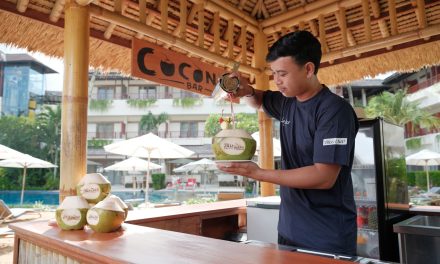When I first touched down in Bali, it didn’t take long for the warm, aromatic air filled with spices to capture my senses. Like many travelers, I was enamored with the island’s stunning beaches and lush landscapes, but it was the food that truly stole my heart. The rich flavors of Balinese cuisine danced through my palate, and I found myself yearning to recreate those delightful dishes back home. That’s when I decided to enroll in a local cooking class, and let me tell you, it was one of the best decisions of my trip!
Why Take a Cooking Class in Bali?
Imagine this: after a sun-soaked day exploring Ubud’s vibrant markets, you find yourself in a cozy kitchen surrounded by local chefs who enthusiastically share their culinary secrets. Taking a cooking class not only deepens your appreciation for Balinese food but also gives you the chance to interact with the culture in a way that mere sightseeing cannot. You get to understand the significance of each ingredient, the stories behind traditional dishes, and even some fun local cooking techniques.
Anecdote from My Cooking Class
One particular class I attended was at the Bali Asli Cooking School. This school is nestled in the hills, with rice paddy views that are simply breathtaking. As I walked in, the aroma of lemongrass and chili wafted through the air, transporting me straight into the heart of Balinese cuisine.
Our instructor, a lively Balinese woman named Wayan, welcomed us with open arms and a huge smile. She began our class with a tour of the nearby market, where we picked fresh ingredients. Watching Wayan barter for spices and vegetables was an experience in itself! I felt like I was stepping into the local culture – an adventure beyond the tourist trails.
What to Expect in a Bali Cooking Class
Most classes typically start with a market tour, where you’ll learn to identify local ingredients and pick up some great bargaining tips. Once back in the kitchen, here’s what you can expect:
1. Hands-On Experience: You’ll get your hands dirty preparing traditional dishes such as Nasi Goreng (fried rice), Satay, or even the famous Babi Guling (suckling pig). The joy of grinding spices by hand and watching them transform into a fragrant paste is something you won’t forget!
2. Culinary Techniques: Local chefs will teach you unique techniques like how to properly caramelize coconut or the art of steaming rice with banana leaves, adding that extra oomph to your dishes.
3. Cultural Insights: These classes aren’t just about food; they often dive into the cultural significance of the meals. For example, I learned that some dishes are prepared for specific ceremonies, making each bite a piece of Bali’s rich traditions.
4. Delicious Feasts: And let’s not forget the best part! At the end of the class, you’ll feast on the dishes you prepared—there’s nothing like savoring your creation surrounded by new friends and a beautiful Balinese sunset.
Recommended Cooking Classes
Here are some of the top Bali local cuisine cooking classes that you might want to consider for your culinary adventure:
1. Paon Bali Cooking Class: Located in Ubud, this class offers a friendly atmosphere where you immerse yourself in Balinese cooking, from market visits to hands-on cooking experiences. The highlight for many is preparing and enjoying a multi-course Balinese feast together.
2. Bali Asli Cooking School: As mentioned earlier, this class is set in a stunning location and emphasizes authentic flavors. Plus, they offer an option to participate in village cooking events, providing an immersive cultural experience.
3. Ketut’s Bali Cooking Class: Here, you’ll learn to cook classic dishes from scratch in a local home. It’s more personal and intimate, and you walk away not only with new skills but also with cherished recipes and memories.
4. Bali Cooking Class: Based in the scenic village of Sidemen, this class focuses on organic and home-grown ingredients. Participants not only learn to cook but gain insights into sustainable cooking practices in Bali.
Practical Tips for Choosing the Right Class
– Research and Reviews: Start by checking reviews on platforms like TripAdvisor or Google. Real-life experiences can guide you to the best options.
– Class Size: Smaller classes often mean more personalized attention. I loved the intimate atmosphere of my class; it made learning so much easier.
– Focus Areas: Different classes might specialize in certain cuisines or dietary needs. If you’re vegetarian or vegan, look for classes that cater specifically to those.
– Location: Choose a class located near your accommodation or the areas of Bali you plan to explore. Ubud is popular for its culinary offerings, but don’t overlook classes in Seminyak or Sidemen.
Final Thoughts
Reflecting on that first cooking class experience in Bali, I realized it was more than about food; it was about connection—both to the culture and the incredible people I met along the way. Whether you’re a seasoned chef or a complete novice, taking a cooking class in Bali is a gateway to experiencing and appreciating the island in a completely unique way. When I returned home, every time I cooked a Balinese dish, I was transported back to that beautiful kitchen, surrounded by laughter, spices, and the spirit of Bali. So, pack your bags, roll up your sleeves, and prepare for a culinary adventure like no other—you won’t regret it!






